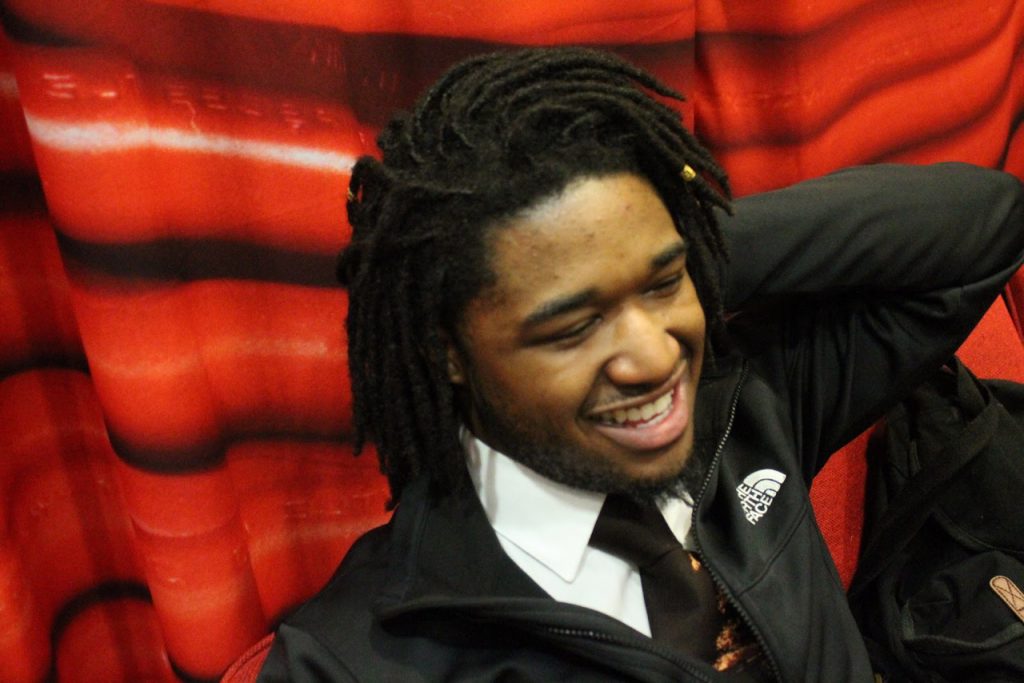
MC Olympics: Where Chicago Teens Hone Their Craft For a Higher Purpose
By Nick Dimas and Anna Mason
photos via YCA
At the start of the 2017 MC Olympics (Feb 23), after a lengthy cipher onstage, host Defcee looked out at the crowd at Columbia College Chicago, and told them they were not rappers.
“We are emcees, not rappers. Because we have something meaningful to say.”
Chicago is plagued by gun violence — and some of the city’s most famed hip-hop promotes drug dealing, murder, and misogyny. But Defcee assures everyone, MC Olympics is different. Meant to help Chicago teens hone and showcase their flows, the workshop and battle is where hosts and participants celebrate the idea of music for a higher purpose than sales and fame.
It’s different in other ways too. Many open-mics and rap battles are cutthroat, with people doing whatever it takes to stand out and get ahead. But MC Olympics mimics the welcoming feel of other Louder Than A Bomb poetry festival events. The start of the event was a perfect example of that harmony, with people from all over gathering in a circle together to swap verses.
Morgan Varnado was in the cypher. He said bringing rap fanatics together is one of the most valuable things the event does. “There’s gonna be a lot of collabs after this one, but it’s also just fun to have people who have your same interest come together and do what you love together,” Varnado said.
Jilla Go echoed the sentiment, saying the collaboration and camaraderie are essential for aspiring emcees. “You’re not going to get anywhere without supporting each other, underground; we gotta build our own way up,” Jilla Go said.
MC Olympics is held every February at Columbia College. It’s an offshoot of LTAB: Participants in MC Olympics say emceeing and slam poetry are similar, but there are key differences.
Nate Russell said the main difference is just the beat, which gives a structure to rapping that poetry doesn’t have. “In a way, poetry is more freeform but once you have constraints with rapping, once there’s a certain way that you kind of have to do it, I think that pushes you to go farther and really look into what you’re doing,” Russell said.
But Aisha June disagrees. She said rapping is more free than slam poetry. “Something I like about rap is the freeness of it. You don’t have to think so much about rap, you can just express,” June said. “[With] poetry, you have to think and express and edit. Poetry pushes you to be a better rapper. Rapping pushes you to think outside the box.”
Both June and Russell celebrate MC Olympics for providing a different avenue for Chicago kids to express themselves. “I think it’s important for the youth of Chicago to have spaces where they can develop art that they’re not normally allowed to develop,” June said. “I think emceeing is really important to develop.”
Russell agrees. “I think it’s really cool that rap and rapping is being recognized as part of poetry, as part of a really important art form. Young Chicago Authors is a really great space for all kinds of art to happen.”